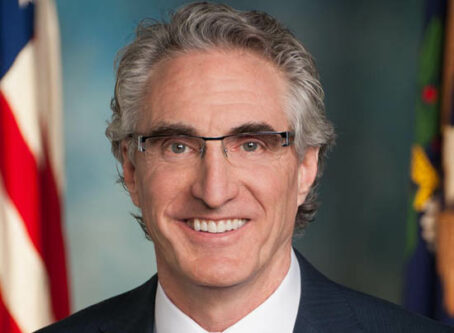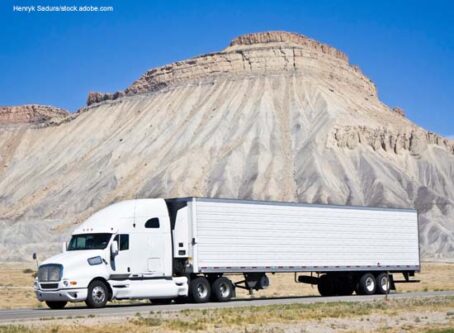States make moves to revise fuel tax rates
A mix of fuel tax rate changes are approved and remain under consideration at statehouses from Connecticut to Utah.
Indiana
A new Indiana transportation law includes an extension of the state’s annual fuel tax increase.
In 2017, a transportation funding law took effect that included a 10-cent increase on gas and diesel purchases. The state’s diesel surcharge tax also increased by a dime.
Additionally, the tax rates were indexed on an annual basis through 2024. Annual adjustments are capped at one penny.
Gov. Eric Holcomb has signed into law a lengthy House transportation bill, HB1050, to extend the indexing for another three years.
The extension is estimated to raise an additional $30 million annually for the state.
The next fuel rate increase is slated for July 1 when the rate increases by up to one penny.
House Ways and Means Committee Chairman Jeff Thompson, R-Lizton, said extending the annual increase is a “reasonable” step as the state grapples with rising construction costs.
Utah
Utah Gov. Spencer Cox has signed into law a series of tax cuts.
One change covers the state’s fuel tax rate.
Utah now charges a 36.4-cent tax on gas and diesel purchases. The rate is up 4.5 cents from a year ago.
The Utah Tax Commission adjusts the fuel tax rate each July. The commission recalculates the rate by charging 16.5% of the average motor fuel price charged by refineries to retailers at the rack.
Previously HB301, the new law changes the calculation of the fuel tax, and increases all vehicle registration fees by $7.
The fuel tax provision lowers the fuel tax rate to 34.5 cents starting July 1. The change will result from dropping the rack rate from 16.5% to 14.2%.
Rates increases will be staggered through 2028, when it is expected to be as much as 42 cents per gallon.
The change is estimated to reduce state tax revenues by about $35.4 million in fiscal year 2024. Another $31 million loss is anticipated the following year.
To help cover revenue loss, the new law adds a 12.5% tax on electricity from electric vehicle charging stations.
Pursuits elsewhere remain active.
Connecticut
Time is running out in Connecticut to pass a bill focused on reducing greenhouse gas emission. One component of the bill is expected to result in significant fuel tax rate increases.
SB1145 would require the state Department of Energy and Environmental Protection to adopt regulations by 2025 to meet greenhouse gas reduction targets for 2030, 2040 and 2050. One change would include transportation fuels in affected emission targeted by the state.
Critics say the bill could result in diesel prices increasing by more than 80 cents per gallon and gas prices increasing by more than 70 cents.
The bill remains in the Senate, with a June 7 session adjournment date looming.
Minnesota
In Minnesota, the Legislature has approved a transportation funding plan that would create new revenue to repair roads and bridges. One revenue source includes a fuel tax increase.
The Minnesota Department of Transportation says there is a $27 billion funding gap over the next 20 years that must be addressed.
House and Senate lawmakers sent to the governor a nearly $8 billion transportation funding bill that permits the state to move forward with spending for roads, bridges, and transit.
The state’s 28.5-cent excise tax on fuel will be tied to inflation. The change authorizes the state to annually change the rate collected on gas and diesel purchases.
A Senate fiscal analysis estimates the tax rate will increase a nickel to 33.5 cents by fiscal year 2027. The change is expected to raise $420 million over that time.
Critics of the tax increase say it does not make sense to raise taxes at a time the state has a $17.5 billion surplus.
This consideration, while we have a $17.5 BILLION surplus! #mnleg
Gas tax — tied to inflation — is on the table at the Legislature https://t.co/os4nPfR7Et via @mnreformer— Lisa Demuth (@LisaDemuthMN) May 17, 2023
Additional sources of revenue tabbed in HF2887 include a 0.75% metro area sales tax increase to cover Twin Cities transit improvements.
A new 75-cent fee would also be added to all retail deliveries in the state. The fee, which is touted to raise up to $180 million annually, would be collected on everything from Amazon deliveries to food deliveries.
Pennsylvania
One Pennsylvania bill is touted to reform the state’s fuel tax collection.
On Jan. 1, Pennsylvania’s 57.6 gas tax rate increased 3.5 cents to 61.1 cents per gallon. The 74.1-cent diesel rate rose 4.4 cents to 78.5 cents.
The changes are due to the state’s variable-rate fuel taxes.
For the past decade, the state taxes increase automatically when the average fuel price exceeds $2.99 per gallon. The Pennsylvania Department of Revenue determined that over the past year, the average price statewide exceeded that amount triggering the latest increase.
The Senate has voted to advance to the House a bill that would put a stop to automatic increases in gas and diesel excise taxes.
SB35 would roll back the excise tax rates to the amounts collected on Dec. 31. Additionally, the average wholesale price would be set permanently at $2.99 per gallon.
Senate Transportation Committee Chairman Wayne Langerholc, R-Cambria, has said the changes would end automatic tax hikes.
“My legislation will cut the gas tax before hardworking families must pay the second highest gas tax in the nation,” Langerholc said in a previous news release. “At a time when our constituents are faced with rising costs at the pump, grocery store and utility bills, no elected official should be voting against this legislation.”
Instead, advocates say lawmakers should be responsible for making decisions on possible fuel rate increases.
SB35 in the House Finance Committee. LL
More Land Line coverage of state news is available.









